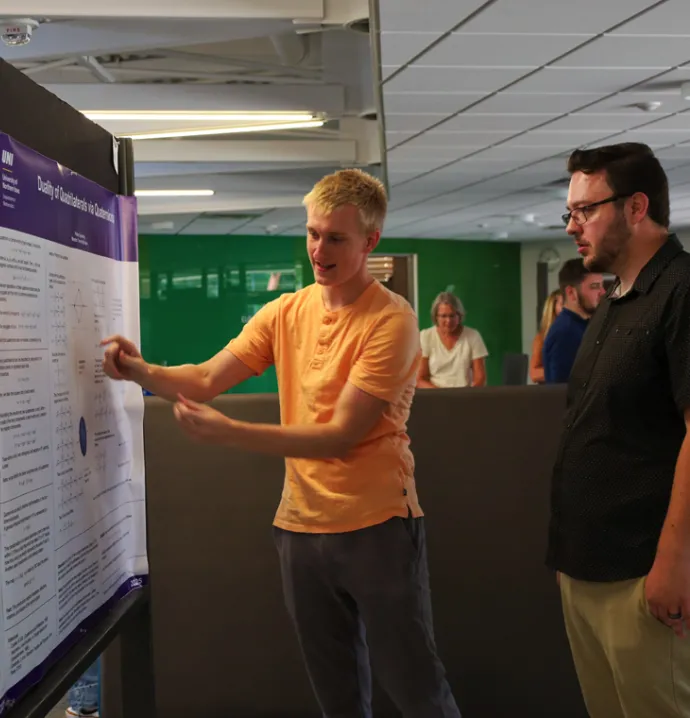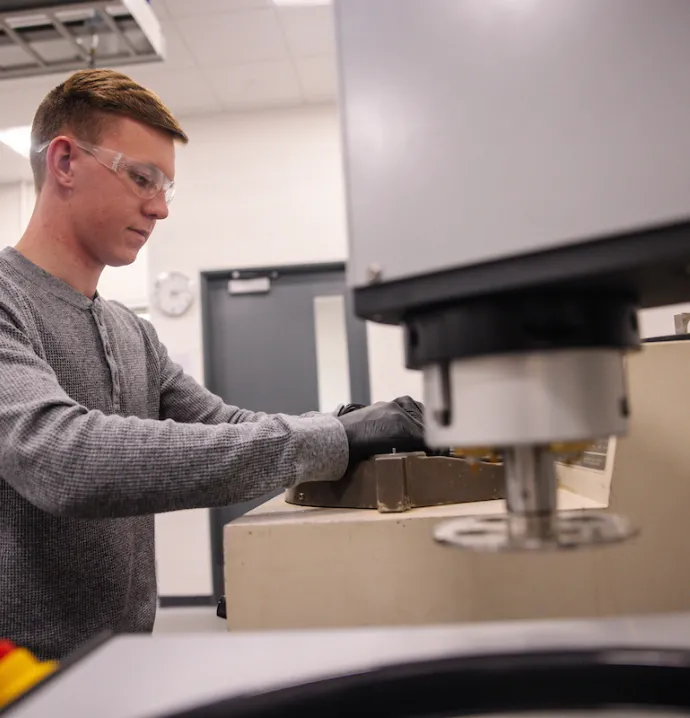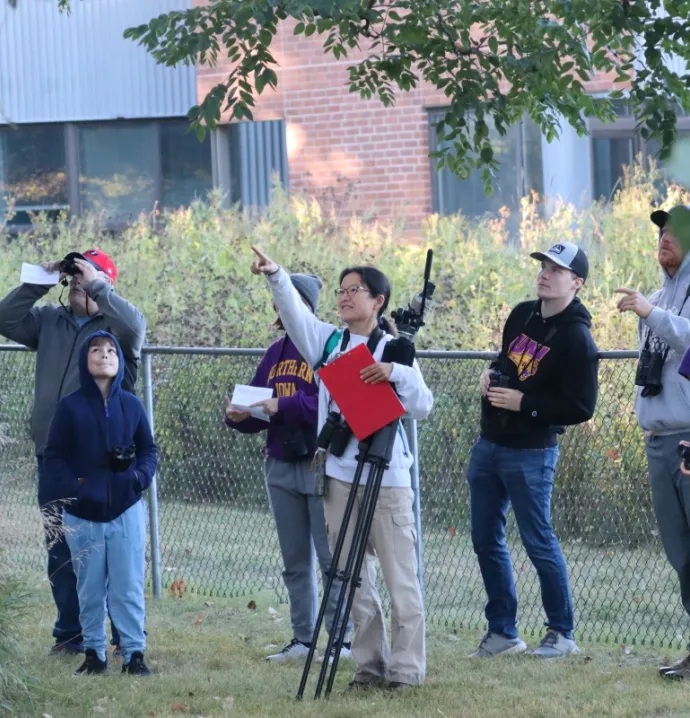Shaping Tomorrow's Workforce
Shaping Tomorrow's Workforce
$44.8 million renovation of the UNI Industrial Technology Center will prepare future manufacturing, construction, technology education workforce
The effort to modernize the facility housing the Department of Technology culminated in a
major milestone in the summer of 2020.
Several years of advocacy work from Iowa industry and professional organizations alongside the
University of Northern Iowa resulted in a three-year, $40.5 million commitment from the
state legislature to modernize the Industrial Technology Center (ITC). The state’s investment
will fund construction costs, while a complementary $4.27 million private fundraising campaign
will furnish and equip the new facility, providing students access to technology-enhanced
classrooms and labs.
“Modernizing our learning spaces is key to educating tomorrow’s industry workforce, and we
are pleased that the hard work of those advocating for this project paid off,” said Lisa Riedle,
Department of Technology head and professor. “We are excited for the future of this
department and the impact our graduates will have on Iowa and beyond.”
Over the past year, faculty and staff have been hard at work planning and designing the new
facility with input from industry stakeholders. The project will renovate 52,000 square feet of
the current ITC and expand the building by approximately 48,000 square feet of new
construction. Groundbreaking on the project is slated for the spring of 2022.
Today’s ITC
Built in 1974 largely to educate shop teachers, the ITC replaced Latham Hall as the home of the
industrial arts program. The $1.6 million project was envisioned to remedy lack of space,
address outmoded labs and meet the demands of rising interest in the program.
Today, the ITC houses six programs within the Department of Technology enrolling nearly 400
students. UNI leadership expects a 20% enrollment growth as a result of the renovation project.
These future graduates will add to the more than 2,800 department alums who live and work in
Iowa.
Among the department’s academic offerings are the state’s only Technology and Engineering
Education program, which prepares teachers to lead industrial technology programs in schools
across Iowa, and construction management programs that target a key workforce
need across our state.
“Across industries, there’s a huge demand for our students, and they have phenomenal records
of career placement and starting salaries,” Riedle said.
The Metal Casting Center, located in the ITC, is a nationally recognized leader in foundry
research, applied technology, and technical business assistance. The UNI Foundation, which is
coordinating the private fundraising campaign for the ITC, is collaborating with the Foundry
Educational Foundation to raise funds for the Metal Casting Center.
A Facility for the Future
Modernizing the ITC will position the Department of Technology well within a changing industry
environment, Riedle said.
Longstanding labor shortages across a variety of sectors, including construction, manufacturing
and engineering, have been exacerbated by the pandemic. Employers are seeking a pipeline of
skilled workers to replace those who are retiring after long careers in their field.
Additionally, a broader industry shift in recent years toward automated manufacturing and machine
learning capabilities are revolutionizing production – and thus, pre-professional preparation.
The “fourth industrial revolution” or Industry 4.0, as the trend is often called, means graduates
will need greater experience in robotics, among other technologies, Riedle said.
“Our current facility simply isn’t fit to support this equipment, or the resulting changes to
curriculum that we are envisioning,” Riedle explained. “Modernizing our learning space is the
first step toward where we want to be as a department.”
Riedle said she values partnership from industry not only in securing state funding, but also in
stepping up with philanthropic support for the project. UNI Foundation staff said the
fundraising effort is approximately two-thirds of the way toward its goal thanks to the
generosity of industry and individual donors.




